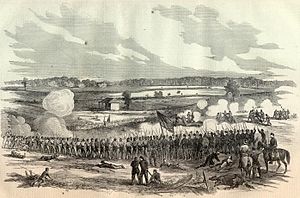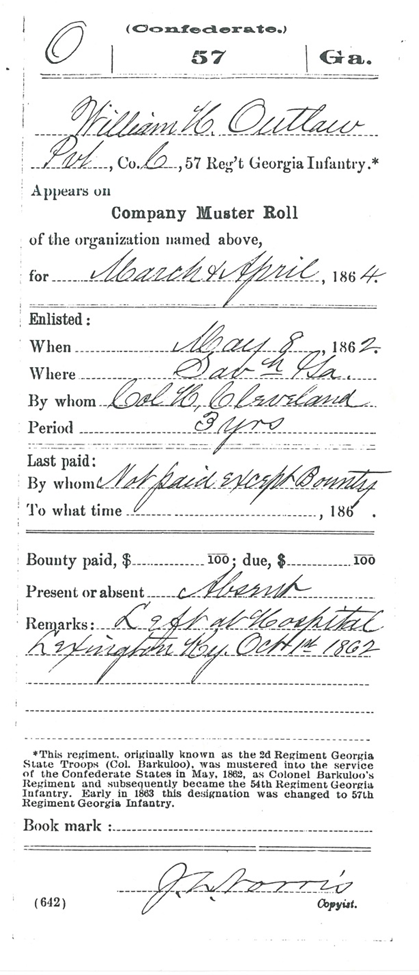Pleasant Hill bears witness to the Civil War
Jacob Glover, PhD, Program Manager
“Such a day as this has never been witnessed on Pleasant Hill before and God grant that it never may again.”
Written by the East Family Deaconness on October 11, 1862, this single line of text reveals much about the Shakers’ complicated relationship with the Civil War, and the events at Pleasant Hill during the campaigns that led to the Battle of Perryville.

As a pacifist sect, the Pleasant Hill Shakers were extremely distressed by the reports of skirmishes and battles that continued to filter into their community throughout 1861 and 1862, as the Civil War intensified. By October 1862, then, the Shakers would have been well-accustomed to reading about the horrors of war. Seeing it in their front yard, however, was something entirely different:
“Strange events! Whoever would have thought that this secluded and sacred spot of truly Pleasant Hill, would ever have been surrounded by the embattled legions within hearing distance in almost every direction….How awful to think of a wicked and bloody battle occurring in the midst of Zion on earth!”
This “invasion” of the Shaker utopia, by both the Union and Confederate armies for several weeks in the fall of 1862, quite obviously, struck at the community’s religious foundations and caused a great deal of consternation among the population. The scenes described by the East Family Deaconness bordered on the apocalyptic, and, at times, the Shakers wrote as if the soldiers who “surrounded our wells like the locusts of Egypt” and “thronged our kitchen doors and windows begging for bread like hungry wolves” would overwhelm them.

Courtesy of Perryville Battlefield State Historic Site.
And yet, despite their absolute rejection of the validity of warfare, the Shakers could not turn a blind eye to the very real human suffering present at Pleasant Hill. “We nearly emptied our kitchens of their contents,” the Shakers commented, “…and then when our stores were exhausted, we were obliged to drive them from our doors while they were begging for food. Heart rending scene!”
The generosity of the Shakers must have been noteworthy and appreciated by the hungry soldiers, as the Shakers reported that none of their possessions or property had been confiscated by either army.
Both before and after the Battle of Perryville, the Shakers supported ailing and wounded soldiers by treating them at Pleasant Hill and sending medical supplies to nearby Harrodsburg. By early November 1862, there were still 600 to 700 soldiers in the town who were too sick or injured to rejoin their units.
While the Civil War, and the events surrounding the Battle of Perryville, had indeed shaken the community to it’s core, the East Family Deaconness refused to concede defeat in the Shakers’ quest to establish their earthly utopia. That Pleasant Hill “should have escaped with comparatively so little damage, clearly implies…” she concluded, “there is still a spark of light, a remnant of faith, and a seed of truth, [and] ‘I will sing praise to my God while I have my being.’”